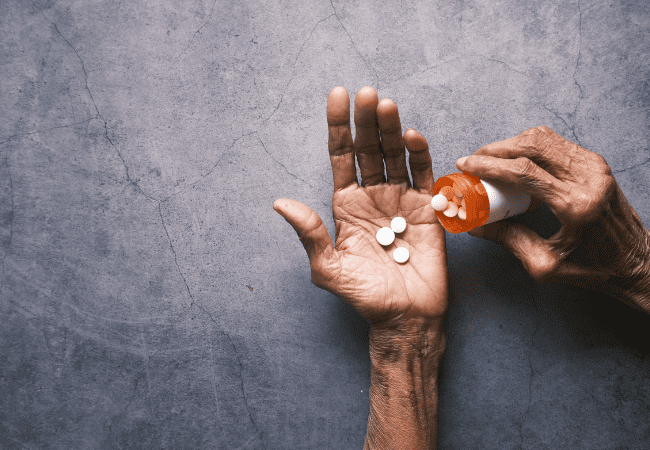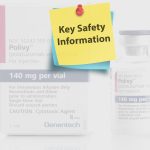In the ever-evolving field of oncology, treatment advancements offer renewed hope to patients battling aggressive forms of cancer. One such promising combination therapy is Polivy (polatuzumab vedotin) used alongside bendamustine and rituximab. This powerful trio has shown remarkable efficacy in treating relapsed or refractory diffuse large B-cell lymphoma (DLBCL), a common and aggressive form of non-Hodgkin lymphoma primarily affecting adults, particularly in patients who have not responded well to other therapies.
This therapy offers hope to patients who have exhausted at least two prior therapies and are not eligible for a hematopoietic stem cell transplant. As an approved treatment in the US and over 70 countries, the Polivy combination has demonstrated promising results, making it a critical option for those facing this aggressive form of lymphoma.
Understanding DLBCL and the Need for Polivy:
Diffuse large B-cell lymphoma (DLBCL) is one of the most common types of non-Hodgkin lymphoma (NHL), known for its rapid progression. For many patients, initial treatments may not lead to long-term remission, leading to relapsed or refractory DLBCL. For these individuals, options become limited, especially if they are not candidates for a stem cell transplant.
This is where the Polivy combination therapy comes in. This innovative treatment regimen provides a new opportunity for patients to achieve remission and improve their quality of life.
How Does Polivy (polatuzumab vedotin) Work?
Polivy (polatuzumab vedotin) is an antibody-drug conjugate (ADC) specifically designed to target and deliver chemotherapy directly to cancer cells. The ADC combines a monoclonal antibody that targets CD79b, a protein found on the surface of B-cells, with a potent chemotherapy agent called monomethyl auristatin E (MMAE). Once Polivy binds to the B-cell, it releases MMAE into the cancer cell, leading to cell death.
When combined with bendamustine and rituximab, Polivy works synergistically to enhance the overall effectiveness of the treatment. Bendamustine is a chemotherapy drug that attacks cancer cells’ DNA, while rituximab is a monoclonal antibody that targets CD20 on B-cells, marking them for destruction by the immune system.
FDA Approval and Global Reach:
The FDA granted accelerated approval to the Polivy combination therapy based on its impressive complete response rate. This means that a significant percentage of patients experienced a complete disappearance of their lymphoma after treatment. However, continued approval of this combination therapy may depend on the results of confirmatory trials, which will verify and describe its long-term clinical benefits.
Beyond the United States, the Polivy combination is now approved in more than 70 countries, providing a critical option for patients worldwide. Its global availability underscores the importance of this therapy in treating relapsed or refractory DLBCL.
What Does the Future Hold?
As ongoing clinical trials continue to evaluate the long-term benefits of the Polivy combination therapy, the future looks promising for patients with DLBCL. The focus remains on improving patient outcomes and offering effective treatment options for those who have exhausted other therapies.
What is Polivy (polatuzumab vedotin) and how does it work in treating DLBCL?
Polivy (polatuzumab vedotin) is a targeted cancer drug that works by delivering chemotherapy directly to cancer cells in patients with relapsed or refractory diffuse large B-cell lymphoma (DLBCL). It is used in combination with bendamustine and rituximab, creating a powerful treatment option for those who have not responded to at least two previous therapies. This combination is effective because it targets the lymphoma cells specifically, reducing their growth and spread.
Who is eligible for Polivy (polatuzumab vedotin) treatment for relapsed or refractory DLBCL?
Polivy (polatuzumab vedotin) in combination with bendamustine and rituximab is recommended for adults with relapsed or refractory diffuse large B-cell lymphoma (DLBCL) who are not candidates for a hematopoietic stem cell transplant. To be eligible, patients must have undergone at least two prior therapies that were unsuccessful. This combination offers a treatment option when other therapies have not worked.
In which countries is Polivy (polatuzumab vedotin) approved for treating DLBCL?
Polivy (polatuzumab vedotin) combined with bendamustine and rituximab is approved for the treatment of relapsed or refractory diffuse large B-cell lymphoma (DLBCL) in over 70 countries, including the United States, Canada, Germany, France, Italy, United Kingdom, Japan, Australia, India, Brazil, South Korea, Russia, South Africa, Saudi Arabia, and Mexico. This widespread approval reflects the drug’s effectiveness and importance in treating this aggressive form of lymphoma.
Is Polivy (polatuzumab vedotin) in combination with bendamustine and rituximab approved in India?
As of now, Polivy (polatuzumab vedotin) in combination with bendamustine and rituximab is not yet approved for use in India. This combination therapy has shown promising results in treating certain types of B-cell lymphomas, particularly for patients who have not responded well to previous treatments.
How can Patients from India and other countries (where this combination medicine is not approved) buy Polivy (polatuzumab vedotin)?
Patients in India and other countries where Polivy in combination with bendamustine and rituximab is not approved can still gain access to this treatment through Named Patient Programs or by importing the medication under specific importation laws. Companies like Indian Pharma Network specialize in facilitating the procurement of such unapproved medicines from countries where they are available. By working with these pharmaceutical networks, patients can import unapproved medicines like Polivy legally and safely.
Conclusion:
For patients with relapsed or refractory diffuse large B-cell lymphoma (DLBCL) who are not eligible for a stem cell transplant, the Polivy (polatuzumab vedotin) combination therapy with bendamustine and rituximab provides a vital treatment option. Its approval in the US and over 70 countries highlights its global significance in the fight against DLBCL. As research continues to verify its clinical benefits, Polivy remains a beacon of hope for patients and healthcare providers alike.For more information on how to access or buy Polivy online and similar treatments, consult with your healthcare provider or reach out to specialized pharmaceutical suppliers.






